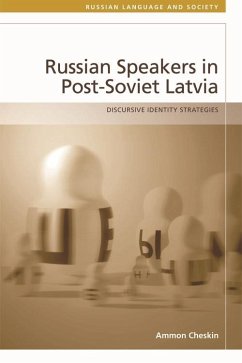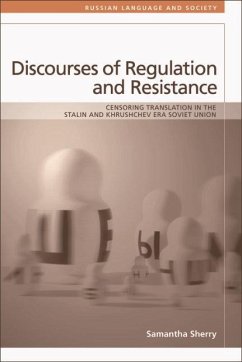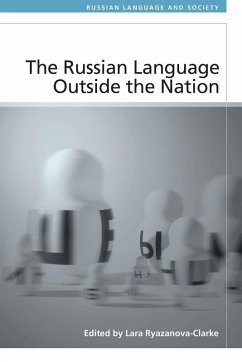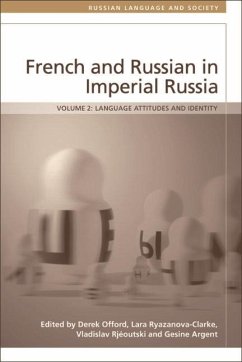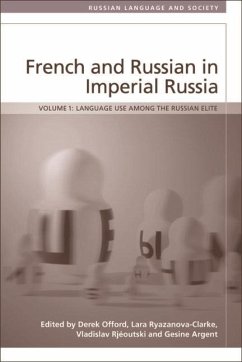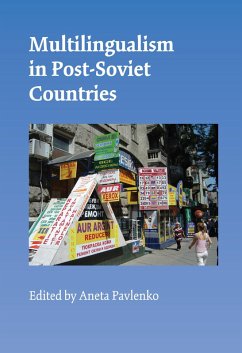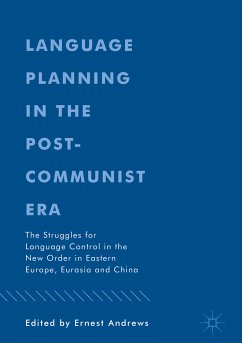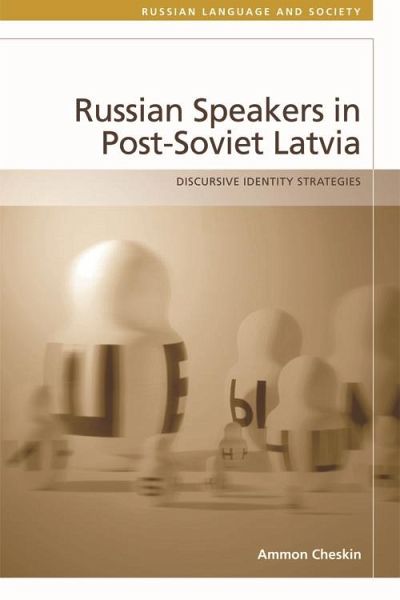
Russian-Speakers in Post-Soviet Latvia (eBook, PDF)
Discursive Identity Strategies
Versandkostenfrei!
Sofort per Download lieferbar
0,00 €
inkl. MwSt.
Weitere Ausgaben:

PAYBACK Punkte
0 °P sammeln!
A theoretical and empirical study of discourse among Russian-speakers in LatviaThe political shocks of the 2014 Ukrainian crisis have been felt in many former Soviet countries, not least Latvia, where over 35% of the population are native Russian speakers. At a time when analysts and commentators are unsure about Russia's future plans to intervene on behalf of their 'compatriots', this study provides a detailed political and cultural analysis of Russian-speaking identity in Latvia.By using Russian-speakers in Latvia as a specific case study, this volume also offers a fresh methodological appro...
A theoretical and empirical study of discourse among Russian-speakers in Latvia
The political shocks of the 2014 Ukrainian crisis have been felt in many former Soviet countries, not least Latvia, where over 35% of the population are native Russian speakers. At a time when analysts and commentators are unsure about Russia's future plans to intervene on behalf of their 'compatriots', this study provides a detailed political and cultural analysis of Russian-speaking identity in Latvia.
By using Russian-speakers in Latvia as a specific case study, this volume also offers a fresh methodological approach to the study of discourses and discursive strategies. It outlines a coherent methodology to study the evolution of discourses over time, rather than a single de-contextualized and static time period.
Drawing on media analysis, elite interviews, focus groups and survey data, Russian Speakers in Post-Soviet Latvia situates the identity strategies of Russian speakers within the political, cultural, and economic transformations of the post-Soviet era. By assessing political, cultural, and economic links with their home state (Latvia) and their potential kin-state (Russia), it offers important insights into the complex identity positions of Latvia's Russian speakers, and how these positions have evolved in Latvia since the late Soviet period.
In a time when many will question the loyalty of Russian speakers to their various 'host states' this book provides a timely, scholarly account of ethnic politics in Latvia. It also offers a methodological framework that allows for the mapping of trends in discursive strategies, exploring how they evolve through time.
- Key Features
- Uses focus-group interviews, elite interviews, survey data and critical discourse analysis to focus study discourses
- Features a case study of Russian speakers in Latvia to add to the debate surrounding the status of Russian speakers outside Russia
- Focuses on the temporally contingent nature of discourse - discussing discursive change and the possibility that a discourse can exist
Dieser Download kann aus rechtlichen Gründen nur mit Rechnungsadresse in A, B, BG, CY, CZ, D, DK, EW, E, FIN, F, GR, HR, H, IRL, I, LT, L, LR, M, NL, PL, P, R, S, SLO, SK ausgeliefert werden.




